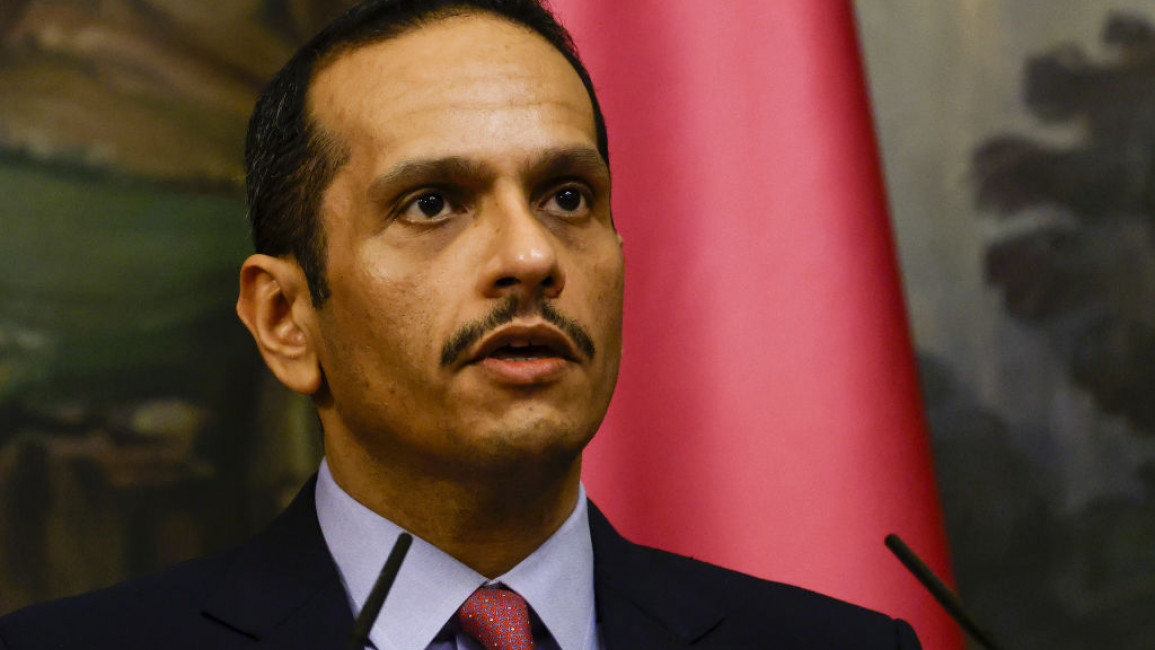Qatar FM to head to Lebanon in search of solution to Lebanon-Gulf crisis
Qatar's foreign minister will visit Lebanon to help find a solution to the evolving Lebanon-Gulf crisis, a statement from the Lebanese prime minister's office said on Monday night.
The announcement came after Lebanese Prime Minister Najib Mikati met with Qatari Emir Sheikh Tamim Bin Hamid Al-Thani on the sidelines of the COP26 climate conference in Glasgow.
The statement from the prime minister's office said that Qatar's Foreign Minister Sheikh Mohammed bin Abdul Rahman Al-Thani will come to Lebanon to "discuss ways to support Lebanon … and to deal with the Lebanon-Gulf crisis". The two leaders also discussed bilateral relations between the two countries.
The fall-out follows comments made by Lebanese Information Minister George Kordahi, who said that Iran-backed Houthi rebels in Yemen were "defending themselves … against an external aggression".
The comments, made before he was appointed minister, sparked a diplomatic row between Lebanon and Gulf states involved in the war in Yemen against the Houthis.
Since Kordahi's remarks, which were made in a televised interview recorded in August but aired last week, Riyadh has recalled its ambassador in Lebanon, suspended all imports to the country, and expelled Lebanon's ambassador in Saudi Arabia.
Bahrain and Kuwait have taken similar measures, while the UAE recalled its ambassador on Saturday and asked all Emiratis in Lebanon to leave the country.
Without explicitly asking for the information minister's resignation, PM Mikati said that Kordahi should prioritise national interests and take the "appropriate decision" to preserve Lebanese-Gulf relations. Kordahi has insisted that resigning "is out of the question".
Mikati also called for talks with Saudi Arabia on Monday to de-escalate the evolving diplomatic spat between the two countries.
While the Gulf blacklisting of Lebanon was sparked by Kordahi's comments, the conflict points to much deeper issues regional relations.
In an interview with CNBC on Saturday, Saudi Foreign Minister Prince Faisal Bin Farhan said that Kordahi's comments were a "symptom" of Hezbollah's domination of Lebanon.
Qatar has long styled itself as mediator in the region. In 2008, Lebanon's political forces headed to Doha to defuse a political disagreement, which had boiled over into factional fighting on the streets of Beirut.
Qatar helped broker a political deal that came to be known as the Doha Agreement.


![Minnesota Tim Walz is working to court Muslim voters. [Getty]](/sites/default/files/styles/image_684x385/public/2169747529.jpeg?h=a5f2f23a&itok=b63Wif2V)




![Debris near Rafic Hariri International Airport [Getty]](/sites/default/files/styles/image_330x185/public/2176162423.jpeg?h=a5f2f23a&itok=MCSK9mkM)
![An Israeli air strike on Jabalia killed teenage journalist Hassan Hamad [Screengrab/X]](/sites/default/files/styles/image_330x185/public/2024-10/hassan%20hamad1.jpg?h=c12e0b96&itok=Rd_dyCVp)
